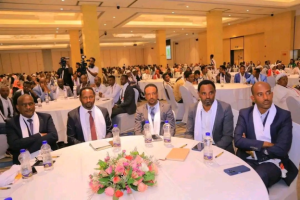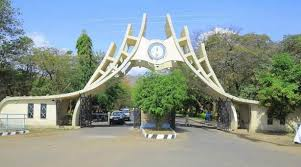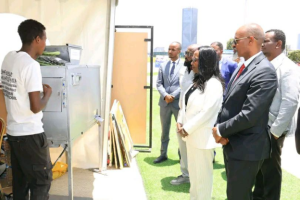
ADDIS ABABA — The recent resignation of Klaus Schwab, founder and long-serving Executive Chairman of the World Economic Forum (WEF), marks the end of an era in global economic discourse.
It also paves the way for a more inclusive, decentralized approach to shaping the future of global governance.
After more than five decades at the helm of the WEF, Schwab’s departure comes at a time when the world is experiencing heightened geopolitical fragmentation and a growing skepticism toward top-down, technocratic models.
This leadership transition opens new possibilities for voices that have long been marginalized—including Africa—to reimaging their place in the global economic architecture.
A premier independent think tank focused on research and policy analysis,Horn Review Director Blen Mamo highlighted the significance of this moment for Africa. “The global order is shifting,” she noted. “As the legitimacy of elite-driven platforms wanes, there is an urgent need for Africa to carve out its own space—one that reflects its realities, challenges, and aspirations.”
For decades, Africa’s absence from key global economic conversations—such as those hosted in Davos—has fueled frustration across the continent. Decisions affecting millions are often made without African voices at the table, or worse, with narratives shaped from outside perspectives.
“In the wake of Schwab’s resignation and evolving global dynamics,” Blen added, “Africa has a rare opportunity to take its rightful place at the global table. The time is now to establish an African Economic Forum—one that is led by Africa, for Africa.”
Such a platform, she emphasized, would not only amplify African perspectives but also foster tangible collaboration and homegrown solutions to the continent’s most pressing issues. More than just a reaction to exclusion, this would represent a proactive step toward shaping a new economic order rooted in equity, sustainability, and mutual respect.
Blen proposed that Ethiopia, with its growing role in regional diplomacy and economic integration, is well-positioned to lead this effort. “This forum could serve as a springboard for deeper intra-African cooperation, helping to bridge divides and catalyze shared prosperity,” she said.
She further stressed that Ethiopia’s vision should extend beyond economic growth alone. “Our development strategy must prioritize sustainable growth, climate resilience, and environmental stewardship. This is not just about catching up—it’s about setting a new standard for inclusive and responsible economic development.”
As the world moves into uncharted territory, the relevance of traditional institutions like the WEF is being called into question. In their place, there is a growing demand for platforms that are more representative and responsive to the needs of all regions. Africa’s moment has arrived—and with bold leadership, it can seize this opportunity to redefine its global role and shape its own economic destiny
BY FIKADU BELAY
THE ETHIOPIAN HERALD WEDNESDAY 23 APRIL 2025





